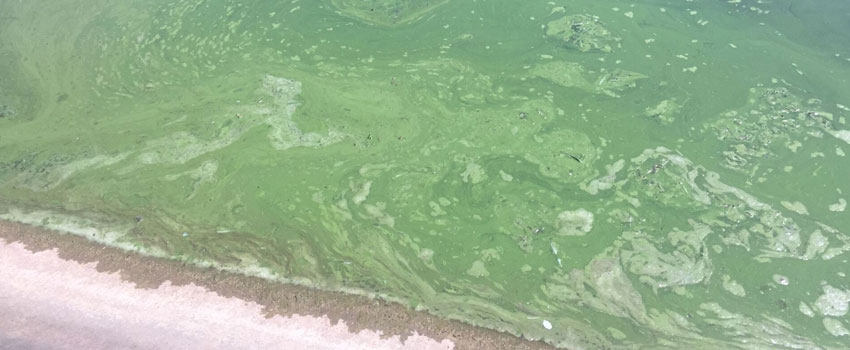Chemical Herbicides Kill Weeds, but Don’t Fix the Deeper Problem…
There’s no doubt that chemical herbicides kill weeds. They’re fast, produce dead weeds, but don’t restore the lake. They don’t resolve nutrient overloading. In fact, herbicides actually contribute to the problem. Here’s why:
- Poisoned weeds and algae blooms sink to the bottom of the lake and rot.
- As they decay, the phosphorous and nitrogen in them are released back into the water column and become nutrients for the next weed growth or algae bloom.
- Once the decayed biomass is formed (“muck”), nutrients are effectively locked into the lake’s sediment and ecosystem and are recycled forever.
- Spending money on Chemical Herbicides year after year is an investment in making the lake worse, not better.
Once the decayed biomass is formed (“muck”), nutrients are effectively locked into the lake’s sediment and ecosystem and are recycled forever.
Killing Weeds with Herbicides is not the Answer
First, when poisoned weeds fall to the bottom of the lake, those weeds become part of the lake-bottom compost pile that fuels further weed and algae growth. Dead weeds make more weeds and algae growth. It’s a downward spiral of lake decay.
Second, when dead weeds layer the lake-bottom and add to the compost pile, their decomposition increases the demand for dissolved oxygen. Lack of dissolved oxygen is the problem in the first place. Decaying weeds only add to the problem. Worse, as the demand for dissolved oxygen is increased, anaerobic bacteria have the opportunity to overtake aerobic bacteria – and aerobic bacteria are nature’s way of converting nutrients into beneficial micro-organisms that feed fish. It’s a lose-lose situation.
Third, certain weeds develop a resistance to chemical herbicides meaning that more herbicide treatments – and more powerful herbicides – need to be continuously applied each year. The cost of applying herbicides increases over time while their effectiveness decreases.
What all this means is that chemical herbicide treatments are not sustainable. They don’t reverse nutrient overloading. They don’t “restore” the lake. They don’t restore the lake’s ability to continually restore itself on an ecosystem level. They treat the symptoms of weed growth…but do not give the lake what it fundamentally needs to get healthy – oxygen and a healthy aerobic bacteria factory.
Be wary of experts who sell chemicals as a long-term solution. In our experience they work against nature…instead of with it.
Lake Renewal Delivers Today and Sustains for Tomorrow
Lake Savers Four Step Lake Renewal Process delivers what chemical herbicides can’t. Relief from choking weeds and algae today and a healthier lake tomorrow and for generations to come.
